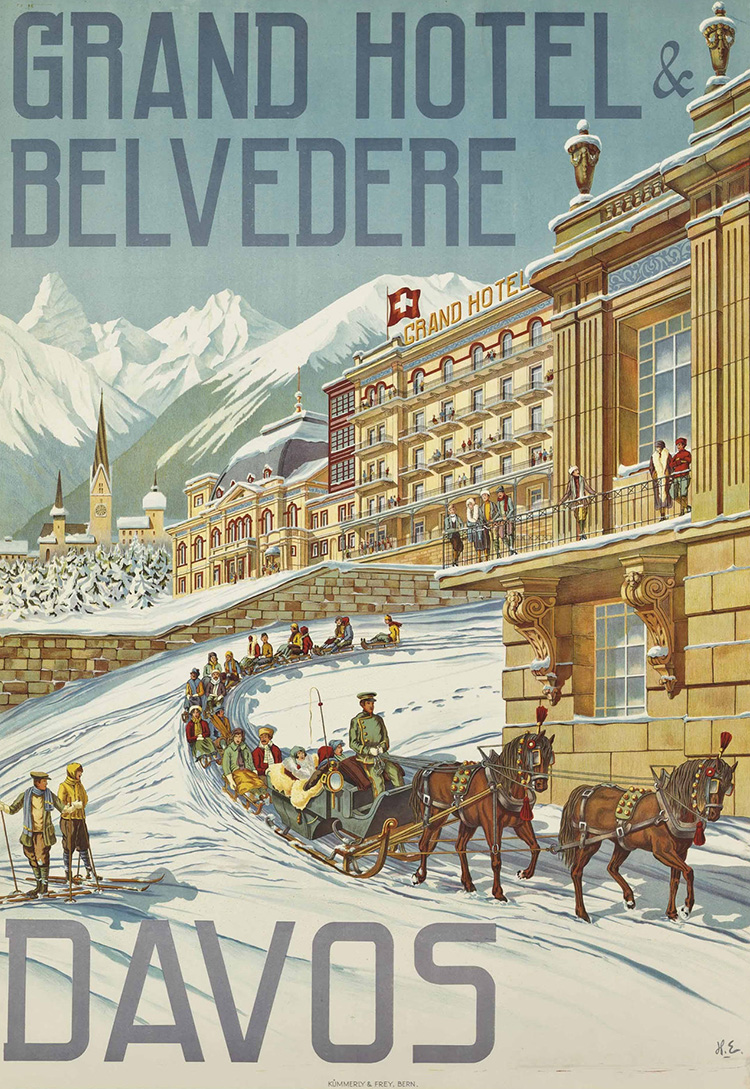Why is Switzerland world-renowned for its colleges in the fields of hospitality, tourism, and gastronomy? Discover the secret of the Swiss educational model.
Swiss higher education dominates the global hospitality scene, with as many as four of the top seven positions. To understand this prestige, we must go back in the history of tourism in Switzerland, then understand the methods of acquiring knowledge, routines, and skills as traditions of Swiss hotel schools. Switzerland's status as an icon of hospitality and tourism was not achieved overnight. Rather, it took 150-200 years to achieve. Switzerland began organizing its tourism much earlier than other countries, already in the 18th century, and was considered a destination that kings, aristocrats, and a new wealthy class of merchants and industrialists must visit.

High social classes were willing to travel long distances, even continents, to visit Switzerland, attracted by its climate, alpine adventures, and spectacular landscapes. Stunning contrasts of the Alps, where snow-capped peaks overlook green pastures and crystal-clear lakes, offering peace or adventure. Villages that look as if they have been untouched for centuries as well as large cities that offer a sense of history that seems typically European. Switzerland was included in the first package tours across Europe, created by Thomas Cook in 1858, even the most famous movie star of his time, Charlie Chaplin, chose Switzerland for his exile, living a quarter of a century in Corsier-sur-Vevey. Also, over the years, the construction of railways, roads, and improvement of infrastructure quality attracted more tourists and elites from across Europe to the country, resulting in significant advancements in hospitality and especially hotel offerings. Guests of high status naturally demanded a high level of service excellence, which required a shift and improvement in the way hotel operations were managed. They built a system of modern and successful hotel management, to meet the increasingly sophisticated demands of guests and to fulfill the desires, wants, and expectations of increasingly demanding guests. Thus, the Swiss model of hotel management was born. To increase tourist demand, hoteliers responded by building luxurious facilities and standardizing quality, thus meeting the high standards of the famous and wealthy guests. The golden age of hospitality put places like Zermatt, Interlaken, Lucerne, Montreux, or St. Moritz on the map and confirmed Switzerland as one of the best tourist destinations in the world. By the end of the 19th century, Switzerland was firmly established as a major European tourist destination. In addition to centuries of experience in the hospitality sector, Switzerland also has several characteristics in its approach. What unique qualities have the Swiss brought to hospitality, tourism, and hotel management? A simple answer can be found in other sectors for which the country is known, including watchmaking and banking. Responsibility, discipline, precision, focus on details, timely service, and discretion are all basic Swiss characteristics that have been transferred to hospitality, with great success. Swiss schools used proven methods to create exceptional managers - training students from the "ground up". Students learn every detail of every department, so they know exactly what each of their employees needs to do. Also known as applied learning, the secret recipe of the Swiss model is in combining practical skills with management theory and applied business exercises. By simulating a real work environment, schools focus on attempting to fully replicate customer-oriented areas. The typical curriculum focused on managing operations - teaching students how to manage a restaurant, reception, accommodation, and guest services, as well as acquiring knowledge in economic and financial analysis, asset management, and cost management. Students gain real-life and business experience, as well as a comprehensive vision of what it means to manage a facility in terms of operations and processes. Also, one of the important things that makes Switzerland accessible to tourists who enjoy these hotels and restaurants is the culture of multilingualism. English is widely spoken, and there are three official national languages: German, French, and Italian. Students have the opportunity to easily master multiple languages during their education, which provides them with numerous business opportunities around the world. This comprehensive method - centuries-old tradition, practical teaching, and multilingualism, is what gives Swiss hotel schools an elite status in the world of international business education. The Academy for Hospitality, Tourism, and Wellness (HTW) in Belgrade was created to meet the needs of the modern tourism and hospitality market, taking into account the best practices and traditions of Swiss hotel schools. Inspired by the reputation of the Swiss educational model, our program is designed to provide students with comprehensive knowledge and practical skills needed for success in this sector: Main features of the HTW Academy include: Practical experiences in our 5 luxury hotels: Students have the opportunity to gain valuable experience working in our luxury hotels, where they learn about all aspects of hotel business, from reception and accommodation to catering services and management. Paid internships: We believe in the importance of internships as a key part of education, therefore we provide students with paid internships in our hotels, tourist organizations, and agencies to gain real work experience and earn money at the same time, with the possibility of independently paying part of the tuition. Multilingualism: As is the case with the Swiss model, we pay special attention to language learning. Our students learn two languages during their studies, which allows them to communicate with guests from different parts of the world and opens doors to a global career. Modern information technologies: We teach students how to use the latest technologies and software that are key to working in the 21st century.

